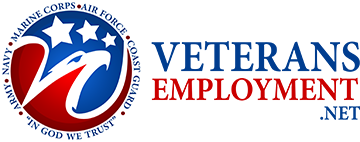Interview Prep
Congratulations, you’ve been contacted about the job you applied for and have a job interview scheduled. This is great news and now, it’s time to get down to work.
It’s very important that you make the time to prepare for your upcoming interview. This preparation includes doing research about the company, thinking about the questions you’ll be asked (and how you’ll answer), and even asking a friend or family member to do a practice interview with you.
If you’re just starting your transition from military to civilian life, it may have been a while since you’ve had a job interview. Our goal is to help you get as prepared and confident as possible in advance, so that you can be your best self during the interview.
As part of our commitment to finding employment for veterans, we’ve put together our top interview preparation tips. Keep reading to learn how to prepare for an interview, to brush up on job interview do’s and don’ts, and to get up-to-date with the most common interview questions. We’ve also included some additional Veteran’s Employment interview preparation resources that you can download and review.
How To Prepare For A Job Interview
Preparing for a job interview shouldn’t be complicated or time-consuming. Make sure you’ve done the following and you’ll be more than ready for your job interview:
- Know the facts about the interview. This includes knowing who will be interviewing you, the format of the interview, and reviewing the job description. Having this information allows you to think about different interview scenarios and to be ready for the types of questions you’ll be asked.
- Research the company. It’s time to get busy with Google and learn all you can about the company. This involves more than reading the About page on the company website. Visit the social media channels, read about the board of directors, the history of the company, learn about company details including the size, office locations, latest product news, etc. You want to be able to answer this question: tell us about XYZ company.
- Think about yourself. We want you to think about your military career and experiences. You’ll need to draw on this during your interview when answering questions about why you want the job, what makes you an ideal candidate, and to provide examples of your abilities. Think of times when you were proud of what you achieved, moments when you struggled and had to adapt, and of how and where you’d like to grow your skills and knowledge.
- Get ready for the interview. Plan your outfit – remember to dress for the interview and the company at which you’re being interviewed. Wear clothes that convey a professional manner and in which you feel comfortable. Make sure you know where you’re going and when you’ll need to leave. Make sure you’ve got copies of your resume and a list of references organized in a folder – and remember to bring this folder with you.
It’s normal to feel nervous before an interview, this is a sign that you’re excited about the possibilities the interview offers. Remember that the hiring manager contacted you – so you’ve already made a good first impression. The job interview is your opportunity to showcase your skills and to remind the hiring manager why he or she decided to bring you in for an interview.
Preparation enables confidence – take the time to prepare and the confidence will follow.
The Do’s and Don’t of Job Interviews
Regardless of the job you’re being interviewed for, there are some universal job interview do’s and don’ts:
- DO: Get directions and know where you’re going.
- DO: Arrive 15 minutes early.
- DO: Bring copies of your resume and a list of references.
- DO: Remember the name and position titles of the people in the interview.
- DO: Follow-up after the interview with an email thanking the interviewer for the opportunity and to provide a chance for more questions and conversation.
- DON’T: Chew gum or bring food and beverages into the interview room.
- DON’T: Interrupt the interviewer when he or she is asking questions or simply talking.
- DON’T: Assume the interviewer understands military terminology and language.
- DON’T: Speak negatively about your current position or boss (you never know who the interviewer is friends with).
- DON’T: Lie about your education, skills, or work employment.
Do you have other job interview do’s and don’ts that you think would help other military veterans like yourself who are seeking civilian employment? Share your job interview do’s and don’ts on the Veteran’s Employment Facebook community page.
The Most Common Job Interview Questions
As part of your job interview preparation, be ready to answer these common job interview questions:
- What is your greatest asset or strength? When answering think of the position you’re being interviewed for and which of your abilities match up best. Don’t boast about your strengths but instead highlight with examples how you used your best skills and attributes.
- What is your biggest weakness? This is a tough question, you don’t want to be super negative about yourself, but you also can’t answer with “I don’t have any weaknesses”. Think about a challenging moment you had in your military career and how you overcame it.
- Tell us about a tough situation you had with a colleague and how you worked through it? This is a question geared around finding out how well you work with others. Everyone has worked with someone they don’t necessarily like or get along with and the interviewer wants to know how well you can adapt to the people you’re working with
- What does success look like to you? Think about the company you’re interviewing with, the position you’re applying for, and the research you’ve done about the company. Your answer should be honest but also reflect the company values and the expectations of the position you’re interviewing for. Think of the success measures that are tied to the job – sales goals, product releases, research initiatives, service installations, etc.
- Why do you want this job? This is your chance to explain why you’re attracted to the company and the position. Think beyond the paycheck and of why you want to work for this company – the research it’s doing, the ethics it is bound by, the goals of the company, etc. Talk about why you’re a good candidate for the job and how you see yourself really contributing in this role.
- Tell us about yourself. This question is very broad but also very direct. Here, the interviewer is looking for clues about what you value about yourself – professionally and personally. Focus on your professional personality and use it as a chance to highlight your career, skills, and education. Don’t forget that most employers today are looking for well-rounded individuals so if you have a hobby that you enjoy or spend time volunteering or have kids – give a good glimpse into this part of your life.
Of course, every hiring manager has his or her own unique set of interview questions, so make sure you’re well prepared and have done your research about the company and the job.
If the interview includes a technical section where you have to answer questions about software development for example, make sure you’ve studied and are prepared.
Veteran’s Employment Job Interview Prep Resources
Get interview-ready with our additional job interview tip documents:
Extra job interview tip: remember to submit your resume to our resume database and to browse our jobs for veterans database.

